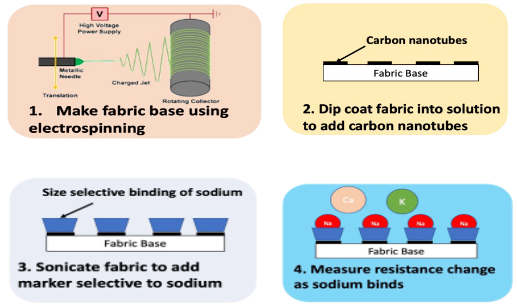RESEARCH
Electrochemical Techniques and Nanocomposite Biomaterials
Bio-electrochemical interfaces are found universally in nature and technology. The field of bio-electrochemical interface engineering provides a simple and effective approach towards the study, design, and fabrication of electrochemical sensors, biofuel cells, biomaterials, and self-powered biosensors. Although many of these applications are mature, there are a significant number of important questions that remain before commercialization of the next generation of these technologies. Our lab is at the forefront of using electrochemical techniques and novel nanocomposite biomaterials to better understand biological processes at a variety of spatial scales. My vision for our lab at Cleveland State University (CSU) is to continue developing the fundamental understanding of how the bio-electrochemical interface impacts electrical, mechanical, and sensing properties of materials.

My expertise is primarily at the intersection of reactions engineering, electrochemical engineering, and device development and testing. Previous work in my group has focused on studying bio-electrochemical interfaces towards the development of novel biomaterials and biosensors. One main project in my group is studying how nano-scale fillers impact the mechanical, electrical, and sensing properties of electrochemical sensing biomaterials. This allows us to study the bio-electrochemical interface at the nanoscale. At the macro-scale, we use novel, nondestructive electrochemical techniques, developed in my group, to study the impact of microbial growth on metal corrosion. More recently, we moved towards using electrochemical techniques to interrogate how microbial growth impacts nutrient cycling in benthic sediments at spatial scales ranging from the micro- to macro-scale.
